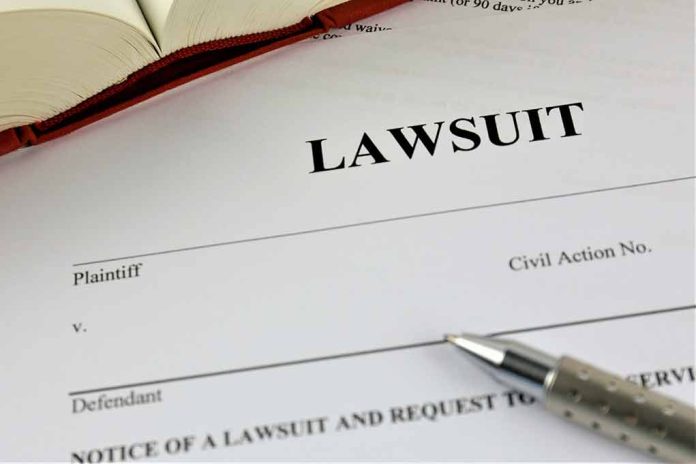
Colorado’s Democrat-controlled legislature has approved a bill to strengthen immigrant protections, directly challenging President Trump’s administration as the Department of Justice sues the state over its existing “sanctuary” policies.
Key Takeaways
- The Department of Justice has filed a lawsuit against Colorado and Denver officials over “sanctuary” policies that allegedly impede federal immigration enforcement efforts.
- The lawsuit specifically references a controversial Aurora apartment complex allegedly taken over by the Venezuelan gang Tren de Aragua, which critics cite as evidence of sanctuary policies endangering public safety.
- Colorado Republicans’ efforts to revive a law allowing local law enforcement to cooperate with federal immigration agents failed in a 2-3 vote after a five-hour debate.
- Despite the ongoing federal lawsuit, Colorado Democrats have pushed forward with additional immigrant protections, highlighting the growing tension between state and federal authorities.
Federal Government Takes Legal Action Against Colorado
The Department of Justice has launched a significant legal challenge against Colorado, filing a lawsuit in federal court in Denver that targets the state’s “sanctuary” policies. The lawsuit names Governor Jared Polis, Attorney General Phil Weiser, Denver Mayor Mike Johnston, and Denver Sheriff Elias Diggins as defendants. At the core of the legal action is the claim that Colorado’s laws preventing local law enforcement from cooperating with federal immigration authorities violate the U.S. Constitution’s Supremacy Clause.
In its filing, the DOJ asserted its constitutional authority over immigration matters. “The United States has well-established, preeminent, and preemptive authority to regulate immigration matters,” stated the Department of Justice in court documents. The lawsuit specifically references an apartment complex in Aurora that federal officials claim was taken over by Tren de Aragua, a Venezuelan gang—a situation they argue demonstrates the public safety risks of sanctuary policies.
This raid in Colorado Springs is a rare victory for justice, but it underscores the catastrophic failure of liberal immigration policies. Fact one: DHS reports that Tren de Aragua’s presence in the U.S. has spiked 200% since 2022, fueled by open-border policies that saw 3 million…
— Saggezza Eterna (@FinalTelegraph) April 27, 2025
State and Local Officials Defend Their Positions
Colorado officials have responded to the federal lawsuit with measured statements defending their policies. A spokesperson for Governor Polis’s office indicated they “will not comment on the merits of the lawsuit” while insisting Colorado is not a “sanctuary state.” Meanwhile, the Colorado Attorney General’s Office expressed readiness to defend state law, noting they have “done so successfully in the past in this area.”
“The Colorado Attorney General’s Office is committed to defending Colorado law and has done so successfully in the past in this area. We stand ready to do so again,” said a spokesperson for the Colorado Attorney General’s Office.
Denver Mayor Johnston’s office has also pushed back against the lawsuit, stating that the city complies with all laws and is prepared to defend its values. The mayor previously testified in Washington, D.C., regarding Denver’s policies on undocumented immigrants. This lawsuit is part of a broader federal crackdown on sanctuary jurisdictions under President Trump’s administration, with similar legal actions filed against Chicago and Rochester, New York.
Republican Efforts to Reverse Sanctuary Policies Fail
Despite the federal pressure, Republicans in the Colorado legislature recently failed in their attempt to roll back the state’s sanctuary laws. Senate Bill 047, which sought to reenact a 2006 law requiring law enforcement to report arrests of suspected illegal immigrants to Immigration and Customs Enforcement (ICE), was defeated in a 2-3 vote after five hours of debate. The bill would have allowed law enforcement to hold individuals for up to 48 hours for ICE action.
“Why is the state of Colorado getting in their way? We want to help our federal partners and do what we do — keep us safe in our respective jurisdictions. We don’t enforce immigration law, but we can certainly assist them to accomplish their mission,” Douglas County Undersheriff David Walcher said.
The bill was inspired by Sheriff Jason Mikesell of Teller County, currently the only department in Colorado complying with ICE under the 287(g) program. Law enforcement supporters of the bill, including El Paso County Sheriff Joe Roybal, argued criminals are taking advantage of Colorado’s “sanctuary” status to “escape prosecution.” However, Democrats in the legislature maintained that immigration has become unnecessarily politicized.
Immigrant Protections Advance Despite Federal Opposition
Even as the federal lawsuit proceeds, Colorado’s Democrat-controlled legislature has moved forward with a bill to expand immigrant protections in the state. The measure has passed the House and appears poised for final approval, signaling the state’s intention to maintain its current stance on immigration enforcement despite pressure from the Trump administration. Critics argue this represents a direct challenge to federal authority over immigration.
Opponents of sanctuary policies, including organizations like the Colorado Fiscal Institute and the Colorado Immigrant Rights Coalition, contend that cooperating with federal immigration authorities would damage community trust, decrease public safety, and potentially lead to racial profiling. Meanwhile, supporters argue that such cooperation is essential for removing violent criminals and protecting communities from threats like those allegedly posed by criminal organizations such as Tren de Aragua.
Sources:
- Department of Justice suing state of Colorado, city of Denver, local leaders over “sanctuary” policies
- Colorado House passes immigrant protections as Trump administration sues over ‘sanctuary’ laws
- Colorado Democrats reject proposal to allow local cooperation with federal immigration agents














